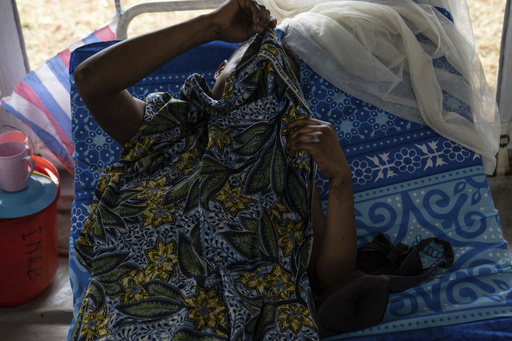Health authorities in Congo are facing challenges in controlling outbreaks of mpox, a disease that has been difficult to contain due to the country’s existing problems. The World Health Organization recently declared the outbreaks in Congo and several other African countries a global health emergency. Congo has reported over 21,000 out of the 25,093 confirmed and suspected mpox cases in Africa this year, making it a significant hotspot for the disease.
Mpox, previously known as monkeypox, is endemic in Congo and belongs to the same virus family as smallpox. It causes milder symptoms like fever and skin lesions in more severe cases. The recent outbreaks have resulted in over 720 deaths in Africa, with most fatalities occurring in Congo. The disease is zoonotic, meaning it can be transmitted to humans from infected animals.
In September 2023, a new strain of mpox was identified in Congo’s eastern province of South Kivu, spreading to other parts of the country including North Kivu. These provinces are facing violence, a humanitarian crisis, and other challenges, exacerbating the already strained healthcare system. The eastern part of Congo has been plagued by conflict among over 120 armed groups fighting for control of minerals, leading to millions of people seeking refuge in camps and towns.
The outbreak of mpox in eastern Congo is overwhelming health facilities that are already operating beyond capacity. Displaced populations lack access to basic necessities like soap and clean water, making them more vulnerable to severe cases of the disease. Despite receiving some doses of mpox vaccines from the European Union and the United States, Congo is in need of millions more, with delays expected before distribution to the affected regions.
Critics have raised concerns over the inadequate response to the mpox outbreaks compared to the resources allocated for diseases like Ebola and COVID-19. Limited funding and international interest contribute to the slower response to mpox, which is viewed as a localized tropical disease with less impact on global economies. Efforts to address the mpox crisis include identifying cases, isolating patients, and implementing health education campaigns, yet challenges persist in reaching and providing care to vulnerable populations in eastern Congo.
The response to the mpox outbreaks in Congo underscores the complexities and urgent need for support to combat the disease and alleviate the strain on the healthcare system in the country’s eastern regions.


